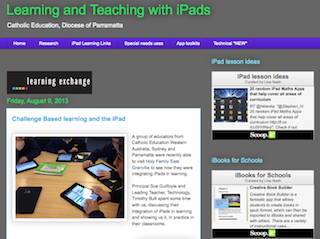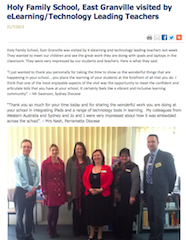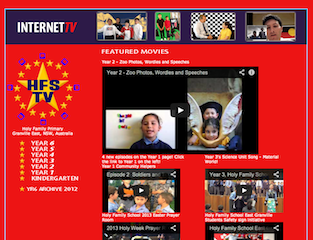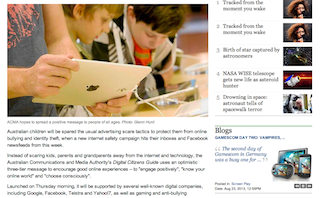Students engaging with technology – global digital citizens who think, create and inquire
Students of today have access to many types of technologies. While technology has significantly changed the way we live, a life balance is needed between the use of these technologies and the development of interpersonal relationships and spirituality.
In my learning space, students are taught to use a combination of collaborative skills and low-tech “hands on” resources. They combine these with technology to extend the learning experience. In this sense the technology is not used for its own sake, but rather to facilitate and enhance a deeper understanding of the curriculum topic.
I have experienced Challenge, Inquiry and Project based pedagogies as an effective way to embed technology into learning. Students ask questions, solve deeper problems and share their findings with the world. I feel that learners become more engaged if the task has a “real world” purpose. By connecting with experts in Industries. Governments, Local Businesses and Non Profit Organisations, and asking deep questions, students then think creatively to effect positive change in our world.
I understand that flexibility is important when technology is embedded in learning. I often ask questions such as; Which tools should be used?, Why are we using them?, Does the task encourage deeper learning?, Are we connecting with our students for a real world purpose?, Does it have relevance to them? Can we personalise the task and use technology to create a product?, If students have individual devices, can their learning response be individual? Do they have choices?, Is the task digital “busy work” or does it encourage metacognition and reflection? Asking questions is the central tenet of my goal to improve learning outcomes for my students.
To be creative, imaginative and to continually learn and relearn are important skills for all 21st century learners. I believe students need to channel their creative strengths to encourage deeper thinking. I teach my students simple skills to work collaboratively to tap into the strengths and imagination of other team members.
The 21st century teacher’s role has become that of a facilitator and product manager. Students have access to arbitrary information, anywhere, anytime online. By teaching critical thinking and problem solving students learn to be discerning. I provide my students with simple steps to break down these learning processes and problems as they occur, to create meaningful responses and reflections.
There is an increasing need for schools to be teaching students digital citizenship skills. I feel we have a responsibility as educators to inform our students and parent communities of the dangers present online and the safety of students is dependent on teaching them skills to protect themselves and their digital footprint. In my present role I have encouraged my colleagues and provided tools and resources to assist in this process across school communities.
The online world is becoming dominated by video and audio content. My involvement in the music industry as a recording artist and songwriter, my connections with the film industry, and experiences in graphics in print and web design since the 1980’s have enabled me to experience personally the rapidity of the changes that have swept the world and will continue to do so.
Above all things this has taught me the necessity to be adaptable. Previously the premise of specialized industries, children in connected classrooms now routinely use software and applications to create and publish in many formats. I encourage my students to exploit their talents to this end - to be imaginative, creative, confident and responsible digital citizens of the 21st Century.



